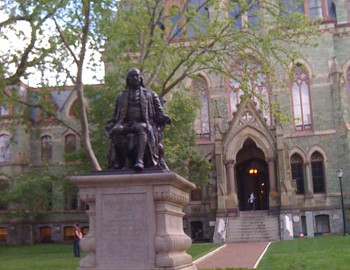What Questions Should You Ask Them During an Interview?
IvySelect counsels students in the use of proven techniques that result in their admission to top-tier colleges and universities. One of the services that we provide as part of an engagement is assisting students in preparation for interviews. Interviews are far from the most critical factor in admissions, but interviewer’s reports are one of the many criteria that can contribute to a positive admissions decision.
Colleges conduct interviews for two reasons. The most common is to evaluate you. The interviewer reports to the admissions office with their opinion of how well you conform to the school’s profile for incoming freshmen, whether you understand what makes their college unique, and whether you would be a good fit for their school. The second reason for interviews is to gather information. The admissions office wants to know more about you than was captured through the application.
After you have submitted your application, an alumni interviewer may contact you for an interview in your area. However, you may prefer to make an appointment to be interviewed by one of the school’s admissions professionals during a visit to the campus, if this option is available. These individuals are more highly trained and experienced in the art of the interview and can draw more insightful observations, which may offer an advantage.
Interviewers don’t play “gotcha”. They use an interview as an opportunity to get to know you as a person beyond your academic record, test scores, essays, and the other information that you submitted with your application. They’ll ask open-ended questions to encourage you to converse freely with them. In addition to evaluating you as a fit for their college, the interviewer also wants to understand your educational objectives in order to be sure that the school can help you to achieve them.
The feedback that we receive from admissions officials leads us to believe that an interviewer’s report more often helps a student’s cause than harms it because the interview portrays you as a multidimensional person rather than just a data set. At the very least, your interview will serve as additional confirmation of your strengths and interests as detailed in your application.
Interviews are not required at all top-tier colleges and are sometimes informational and not evaluative, but many of the most selective institutions either require an evaluative interview or recommend one.
The table below is a partial list of the highly selective and selective colleges and universities that either require or recommend an evaluative interview.
| · Brown | · Bates | · Duke |
| · Columbia | · Bowdoin | · Hamilton |
| · Dartmouth | · Carnegie Mellon | · Haverford |
| · Harvard | · Colby | · Chicago |
| · Princeton | · Duke | · Swarthmore |
| · Penn | · Georgetown | · Wake Forest |
| · Yale | · Emory | · MIT |
| · Middlebury | · Rice | · Union |
| · Pomona | · Trinity | · Tufts |
| · Wake Forest | · Wellesley | · Northeastern |
IvySelect helps students prepare for frequently asked interview questions. Several such questions are in this IvySelect blog post. We coach our students so that they are thoroughly prepared and are therefore relaxed and confident in interviews. Due to diligent preparation, our student’s responses don’t sound robotic even if they are, in fact, rehearsed. The student’s high confidence level also enables them to provide cogent ad lib responses to questions that were not anticipated.
Interviewers expect students to ask questions, not just answer them. To fail to ask questions may be seen as lack of interest in the school. Below are guidelines on the type of questions to ask as well as what not to ask.
The first two are examples of questions that indicate that you did your research, the third gives interviewers a chance to talk about themselves (which everyone likes to do), and the fourth shows that you were listening when they were speaking. Note that the questions are worded so as to “assume the close,” i.e., they subtly anticipate acceptance.
- “I plan to participate in the field study program in archaeology, but that may interfere with my ability to play in the school orchestra. Are there other student-musicians who study abroad in pursuit of their major?”
- “I want to participate in the internship program that you have for fine arts majors but I didn’t find examples of what these internships would entail. Can you give me some examples so I can see if they would interest me?”
- “When you were an incoming freshman here, what do you wish that you knew that you didn’t know?”
- “Earlier, you mentioned that there are math tutors who are undergraduates. Can you explain to me what qualifications are necessary to become a student-tutor?”
Here are a few tips on the types of questions not to ask:
- Don’t ask anything that is answered on the website or in the course catalog
- Don’t focus your questions on campus life to the exclusion of academics
- Don’t ask, “What are my chances for admission?”
- Don’t ask so many questions that not enough time is left to talk about you
- Don’t shoot from the hip — plan your questions purposefully
- Don’t ask the interviewer any questions that they may consider too personal
You can rely on your IvySelect college admissions consultant to assist you with all aspects of interview preparation. The interview may not be the most important factor in admissions, but it’s one you can hit out of the park through preparation and practice.





